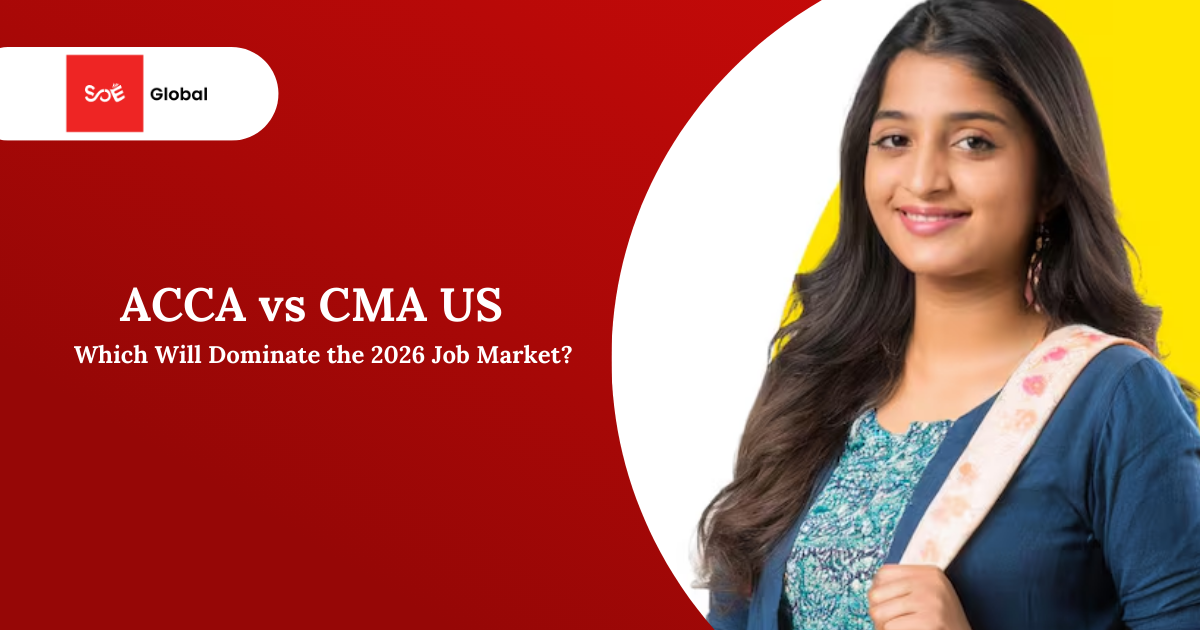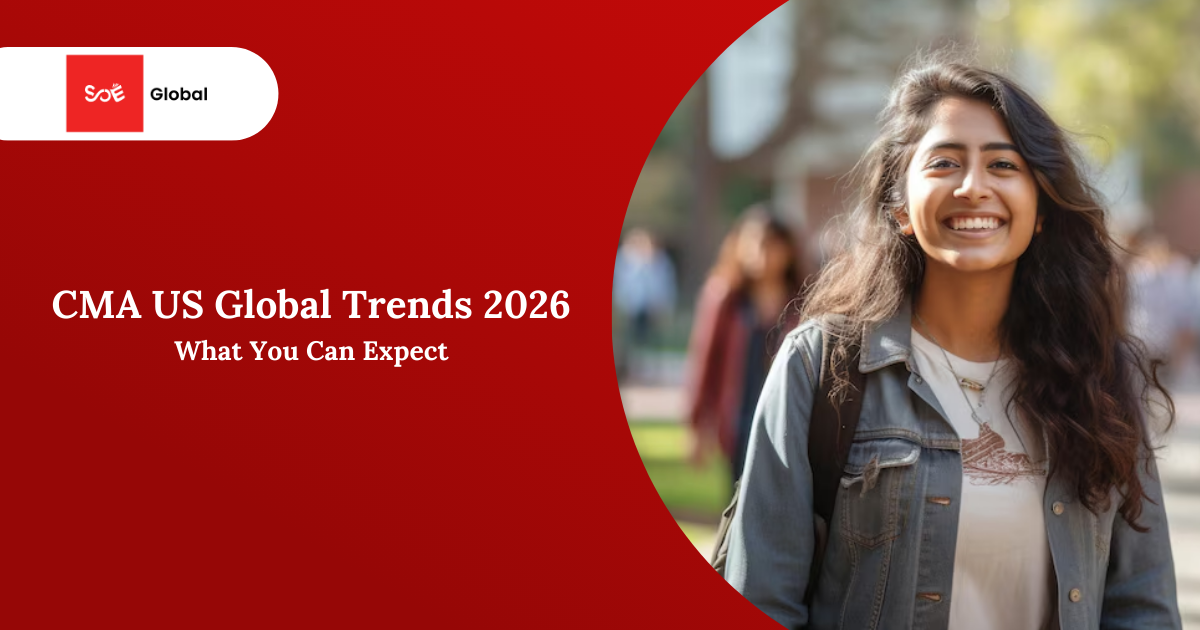Table of Contents
ToggleIf you’ve ever dreamed of working at a Big 4 firm in India: Deloitte, PwC, KPMG, or EY, you’re not alone. For finance and accounting aspirants, these names carry serious weight. They’re not just firms, they’re career launchpads. And yes, the competition is stiff, but with the right approach, planning, and persistence, it’s absolutely achievable.
In this blog, we’ll walk through everything you need to know to crack a job in a Big 4. No jargon. No fluff. Just the kind of conversation you’d have with a mentor who’s been there and done that.

Ready for a High-Paying Career in Accounting & Finance?
Join our ACCA, CMA US & IFRS courses for real results.
First, Why Do So Many Want to Work at the Big 4?
Big 4 firms are not the only good employers out there, but they do offer an unmatched mix of brand value, learning curve, client exposure, and future opportunities.
- You get to work with top MNCs and listed companies.
- You build a powerful network.
- You gain real-time, multi-industry exposure.
- And, well, having a Big 4 name on your CV opens doors anywhere in the world.
But how do you actually get your foot in the door?
Step 1: Know What They’re Looking For
It’s not just about marks or degrees.
Here’s what Big 4 recruiters usually scan for:
- Strong communication skills
- Problem-solving ability
- Exposure to accounting/finance concepts
- A willingness to learn
- Good teamwork and client-facing potential
Technical knowledge matters. But soft skills? Just as important.
Depending on the role (audit, tax, advisory, consulting), they might also expect:
- ACCA or CMA US knowledge
- Hands-on Excel or Power BI use
- Awareness of current business/financial affairs
SOE Global students often crack Big 4 interviews because of the practical focus in training, from IFRS applications to mock interview prep. It’s not just about clearing exams; it’s about understanding how things work in real-world roles.
Step 2: Choose the Right Course (and Finish It Well)
Here’s the thing, you don’t need a CA to get into a Big 4.
Over the past few years, Big 4 firms have actively hired ACCA-qualified candidates, especially in international reporting, audit, and advisory roles.
Similarly, CMA US professionals are being considered for roles in FP&A, costing, and financial control.
So, if you’re pursuing:
- ACCA – You’re eligible to apply after 6 papers, though completion strengthens your profile.
- CMA US – Even as a student, you can apply for internships or analyst roles with a plan to complete within the year.
Over the past three years, hiring trends have shown a sharp increase in demand for professionals with international certifications like ACCA and CMA USA, especially at Big 4 firms in India.
(Source: Naukri Hiring Trends Report, 2024)
Don’t just clear papers. Focus on understanding application-based scenarios, this is what the Big 4 tests in interviews.
Step 3: Start Early: Internships Matter More Than You Think
The biggest myth? That you should wait till you finish your course before applying.
In reality, the smartest students start looking for internships during their 2nd year of college or while pursuing ACCA/CMA.
Here’s how to do it:
- Visit the careers section of Big 4 websites regularly (they post roles for interns, trainees, and associates often).
- Create alerts on LinkedIn with keywords like “Audit Intern Big 4 India”, “EY Internship”, etc.
- Participate in campus drives if your college is listed with a Big 4.
- Even if there’s no opening now, apply. Send a crisp email with your CV to the right department (audit, finance, tax).
Quick tip: Some SOE Global learners have landed interviews just by showing initiative and reaching out to HRs directly on LinkedIn with a well-worded message + resume.
Step 4: Build Your CV and LinkedIn Like It’s a Sales Pitch
Your CV isn’t just a formality. It’s your first impression. Make it count.
Include:
- Education (ACCA, CMA US, BCom, etc.)
- Key achievements (ranks, awards, case study wins)
- Certifications (Excel, IFRS, data tools)
- Internships or projects (even if unpaid, they count)
On LinkedIn, keep your profile updated, add a short summary, and showcase your learning journey. Share thoughts on finance trends, results, events, these show you’re active and aware.
Step 5: Prepare for the Big 4 Interview: It’s More Than Just “Tell Me About Yourself”
Interviews can be intimidating, but if you know what to expect, you’ll be fine.
Here’s what usually happens:
- Aptitude or Written Test: Basic math, English, logical reasoning, and accounting concepts.
- Group Discussion or Case Study: Communication and decision-making skills.
- Technical Interview: Questions around accounting standards, Excel functions, real-world scenarios.
- HR Interview: Culture fit, salary expectations, long-term goals.
Common ACCA or CMA-based questions include:
- How would you treat this under IFRS 15?
- What’s the difference between standard costing and variance analysis?
- How would you present a financial report to a non-finance client?
SOE Global regularly conducts mock interviews and placement prep sessions, which helps students practice answering real Big 4-style questions under pressure.
Step 6: Don’t Rely Only on Big 4 – Build Experience That Gets You There
If you don’t get in right away, it’s not the end.
Work at mid-size firms, FP&A roles, or finance departments of startups to gain experience. Many Big 4 hires come from lateral moves once you have 1–2 years of solid work exposure.
Always ask yourself , is the role helping me learn audit, advisory, compliance, financial analysis, reporting? If yes, you’re building the right kind of experience.
Step 7: Stay Updated and Stay Hungry
Big 4s want people who are up to speed.
Make it a habit to:
- Read ET Markets, Mint, or Financial Express
- Follow finance creators or LinkedIn voices
- Stay updated on latest financial regulations or M&A moves
Candidates who show curiosity and awareness stand out.
Why ACCA and CMA US are Game-Changers
Not everyone has the time or interest to pursue a full-fledged CA. And that’s okay.
ACCA and CMA US are globally respected, quicker to complete, and focused on practical applications. In India, especially for roles involving global clients or MNC work, Big 4s see ACCA and CMA US as solid, dependable alternatives.
SOE Global, being a top learning provider for both ACCA and CMA US, offers the kind of hands-on training and career support that matches exactly what the Big 4 looks for, skill, speed, and substance.
Final Thoughts
So, how do you get a job in a Big 4 firm in India?
You start by building the right mix of qualification, skill, awareness, and initiative. Whether you’re still in college or already working, the steps are clear, start early, stay consistent, and never stop learning.
And remember, it’s not just about landing a job. It’s about growing in an environment that pushes you to think bigger, aim higher, and keep evolving. If that sounds like your kind of place, the Big 4 is worth the chase.




